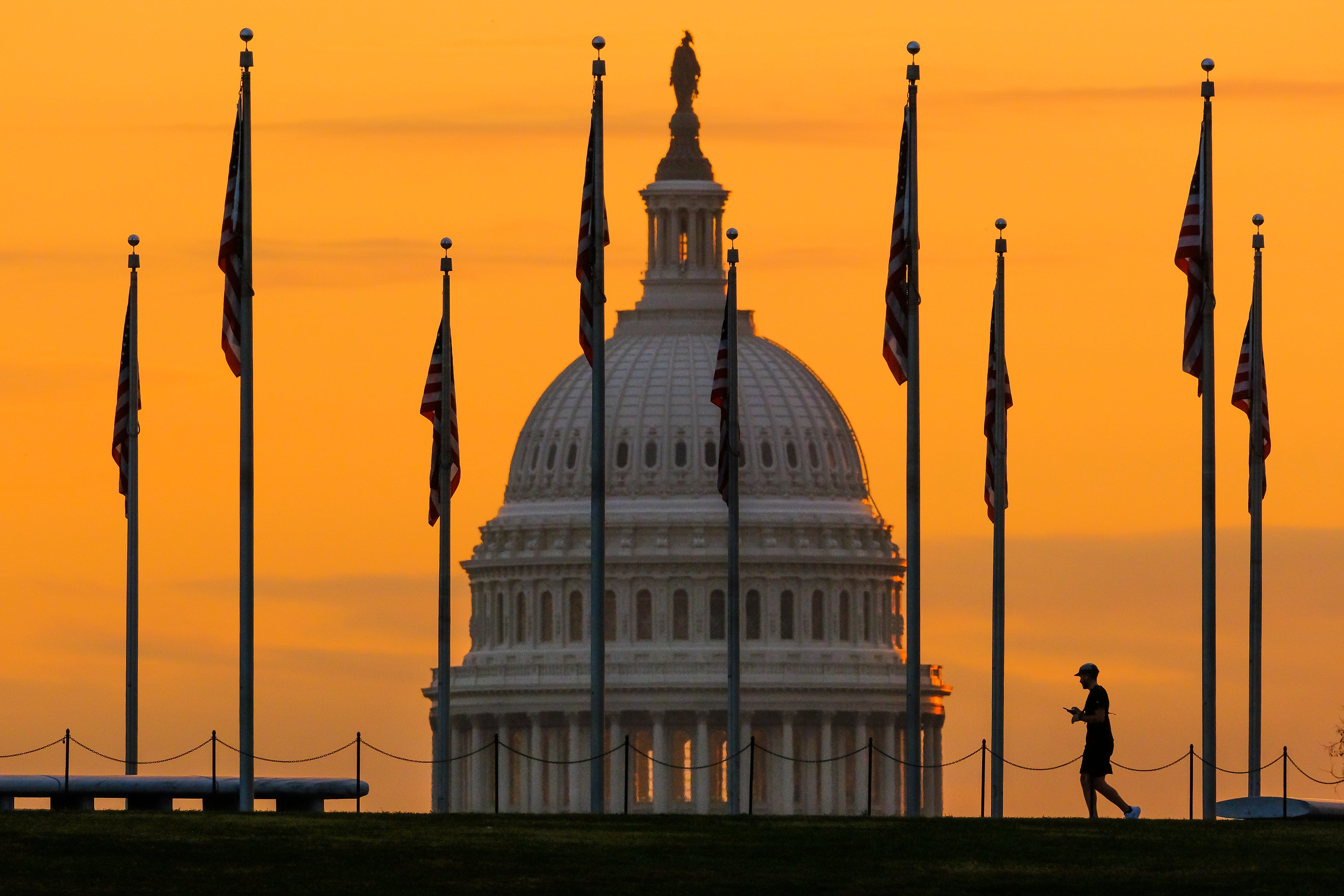Dozens of Republicans try to block same-sex marriage law weeks after Club Q massacre
The legislation comes after multiple stops and starts but also a massacre at a gay nightclub in Colorado Springs

Your support helps us to tell the story
From reproductive rights to climate change to Big Tech, The Independent is on the ground when the story is developing. Whether it's investigating the financials of Elon Musk's pro-Trump PAC or producing our latest documentary, 'The A Word', which shines a light on the American women fighting for reproductive rights, we know how important it is to parse out the facts from the messaging.
At such a critical moment in US history, we need reporters on the ground. Your donation allows us to keep sending journalists to speak to both sides of the story.
The Independent is trusted by Americans across the entire political spectrum. And unlike many other quality news outlets, we choose not to lock Americans out of our reporting and analysis with paywalls. We believe quality journalism should be available to everyone, paid for by those who can afford it.
Your support makes all the difference.Thirty-six Senate Republicans voted against codifying same-sex and interracial marriages just weeks after a shooting at gay club in Colorado Springs left five people dead. The measure ultimately passed 61 to 36, and now heads to the House for final passage.
Every Democrat (save for Raphael Warnock, who was not present) joined 12 Republicans in voting to extend protections for same-sex and interracial couples.
Democrats decided to take action on same-sex marriage after the Supreme Court voted to overturn Roe v Wade in its Dobbs v Jackson decision. Justice Clarence Thomas also wrote a concurring opinion saying that the court should re-examine Griswold v Connecticut, which prohibited states from preventing married couples to obtain birth control; Obergefell v Hodges, which legalised same-sex marriage nationwide; and Lawrence v Texas, which nullified anti-sodomy laws.
The legislation would require the federal government to recognise a marriage between two people if the marriage was valid in the state where it was performed. It would also guarantee that such marriages are given full faith and credit, regardless of their sex, race, ethnicities or national origin of the people involved.
At the same time, religious conscience objections would be protected, and non-profit religious organisations would not be compelled to provide services, goods or facilities for same-sex weddings. The bill says that no eligible person or entity can lose their tax-exempt status.
Democratic Senators Tammy Baldwin of Wisconsin and Kyrsten Sinema of Arizona--the first two openly LGBTQ+ Senators--negotiated the legislation with Republican Senators Thom Tillis of North Carolina, Susan Collins of Maine and Rob Portman of Ohio.
“I think it means that this should never be viewed as a partisan issue, And that Republicans recognize that America has moved so far forward on this matter,” Ms Baldwin told The Independent.
Republican Senators Roy Blunt of Missouri, Richard Burr of North Carolina, Shelley Moore Capito of West Virginia, Cynthia Lummis of Wyoming, Lisa Murkowski of Alaska, Mitt Romney of Utah, Todd Young of Indiana and Dan Sullivan of Alaska all voted in favor of the bill. Senators Ben Sasse of Nebraska and Pat Toomey of Pennsylvania did not vote.
But many Republicans objected to the religious liberty protections, which they said were insufficient.
“This is religious discrimination,” Senator Roger Marshall of Kansas told The Independent.
Conversely, Senator Elizabeth Warren of Massachusetts, a former Sunday school teacher, defended the legislation.
“People who love each other should have an opportunity under secular law to make the same arrangements that will be recognized by the state, regardless of the sex of the participants,” she told The Independent. “What people want to worship in their own churches is up to them. But what the government does, is about treating all of its citizens with equal dignity.”
Senator Cynthia Lummis of Wyoming, a Republican who voted to move the bill forward earlier this month, spoke on the Senate floor about how she had faced criticism for her support.
“For the sake of our nation today and its survival we do well by taking this step,” she said in a floor speech. “Not embracing or invalidating each other's devoutly-held views but by the simple act of tolerating them.”
Ms Lummis later spoke to The Independent about the diffficulty she faced.
“I have I agonized over this bill. And so I ended up kind of pouring out how I resolved my inner battle to get to the point where I did,” she said. Ms Lummis said she hoped she could speak more to voters in the future.
“And I'm going to send them my core remarks and hopes that it will help them understand why I voted the way I did,” she said.
The bill’s passage comes more than a week after a gunman allegedly opened fire at Club Q, a gay club in Colorado Springs, and killed five people.
“Well, it's absolutely heartbreaking what what has happened and I think it is all the more reason why we should pass,” Senator Michael Bennet of Colorado, who recently overwhelmingly beat his Republican opponent, told The Independent.
The passage of the legislation comes after the House already codified the legislation. But the Senate will likely send its version back to for final passage.
Correction: This article was amended on December 1 2022. It originally included the case US v Windsor, which allowed the federal government to recognize same-sex marriages, among those cited by Justice Clarence Thomas, but that was not the case. It should have referred to Griswold v Connecticut.



Join our commenting forum
Join thought-provoking conversations, follow other Independent readers and see their replies
Comments